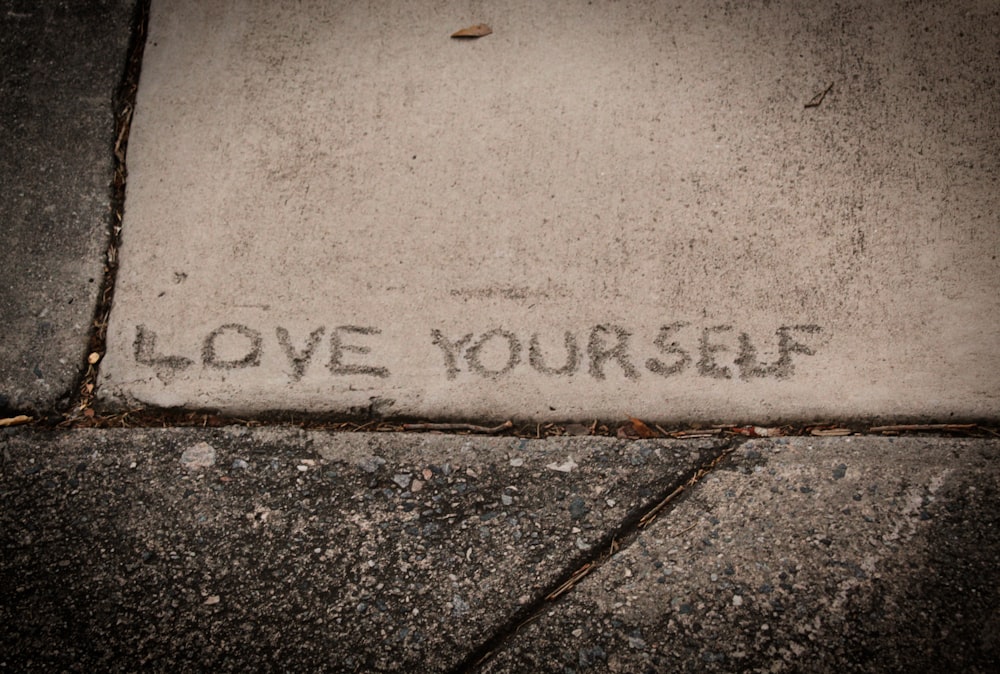Written by Allie Barnes
As a teenager, I recall trying to get my dad’s attention after he got home from work, telling him about my accomplishments and good grades in school that day. When I was in my early 20’s, a close friend ended our friendship because I had anxiety, he said, and he didn’t want to deal with it anymore. In a relationship with someone struggling with a sexual addiction, I found myself confused at being told at different times that I was either too sexy or not sexy enough, too compelling, or not worth the time.
I have to earn my worth, I heard. My shortcomings and flaws will cause people I love to leave me. I am not enough, in seemingly every single way.
For 28+ years, I put my entire sense of worth in the hands of others. I didn’t know how to process these (and many other) interactions in any other way. Many of my reactions to these experiences were fear-based (again, I have to earn my worth; my shortcomings and flaws will cause people to leave; I am not enough) and my sense of insecurity was high. This is not the way to live—for me, or for the people I love, who I often leaned on to build my self-worth back up (what a heavy burden to carry).
I prefer to write about situations that I am already on the other side of—that I have worked through, learned from, and can confidently share about. I can’t say that in this case. I’m still working through these limiting beliefs and practicing more mindfulness in potentially life-shattering interpersonal communications. I’m still trying to build up my sense of self-worth, and have that self-worth based solely on my internal knowledge of my innate worth, not on another’s unstable, unreliable, and incomplete perception of me.
Quick side note: Self-worth refers to our internal sense of worth, while self-esteem is more based on external achievement. The examples I shared at the beginning of this article were me chasing self-esteem (external), while a firmer sense of stability would come from building up self-worth (internal).
Here are some things I’ve learned over the past few months of studying both self-worth and self-esteem:
1. Ignore the numbers—on your scale, and on your clothing tags.
For me (and research supports that this is true for many people), body image is directly correlated with my self-esteem—if I don’t feel comfortable externally, it’s going to be a bit harder for me to feel great about myself internally. To help ease this discomfort, I recommend ignoring the numbers. I’m putting this step first because it’s a very tangible thing you can do to directly impact how you feel. If you feel uncomfortable in your clothes, find yourself waiting to just lose 5-15-etc. more pounds, or what have you before you let yourself feel good, go invest $30 in a pair of jeans that actually fits. Ignore the number on the tag. Do the jeans feel good on your body? Can you breathe freely? Can you lunge or do a fun dance in the dressing room? Good.

In her book “Letting Go of Leo,” this was one of the first steps that holistic health & lifestyle coach Simi Botic took to work toward self-confidence and peace. The day after reading this in her book, I went out and did the same thing. I feel really, really good about that decision.
Instead of basing personal worth on a number, perhaps focus on how to best fuel your body for the activities and work you do through the day. Perhaps eat what feels and tastes good. Perhaps move around and exercise for fun, or gain strength and endurance to complete the activities that you genuinely want to pursue. Shift the focus away from frustration, anger, or disappointment toward your body, and instead love it exactly as it wonderfully is, and for what it can do.
2. Seek to connect with your Higher Power in more meaningful ways.
I say “more meaningful ways” because I think it’s easy to lightly study religious texts, pray every once in a while, and call that good. But if a friend texts you, you skim over a portion of it, and don’t text back until a few days later, is that really going to nurture that relationship? Skimming won’t build that relationship with your Higher Power, and according to many major world religions, that relationship is pretty darn beneficial.

Research has shown the effectiveness of addiction recovery programs like Alcoholics Anonymous. A large part of this effectiveness is due to the program’s focus on connecting to a Higher Power — showing that internal healing and peace, in whatever way is needed, can definitely come from this relationship. The first three of the Alcoholics Anonymous 12 Steps directly relate to this:
We admitted we were powerless over alcohol—that our lives had become unmanageable.
Came to believe that a Power greater than ourselves could restore us to sanity.
Made a decision to turn our will and our lives over to the care of God as we understood Him.
Consider replacing “alcohol” with whatever is currently weighing on your soul.
In a lecture by Kevin J. Worthen, President of Brigham Young University, he shares how connecting with a Higher Power (in his case, Jesus Christ) can help ease fear—and I would say, the personal insecurity that often comes with anxiety and fear:
“The more we know Christ, the more we will trust and love Him and the more faith we will have in Him. …Simple acts of daily scripture study and prayer—especially with the intent to know the Savior better—will do more than almost anything else to strengthen your faith in Him, which, in turn, will decrease the amount of irrational fear in your life, no matter the particular cause of that fear.”
Faith and fear cannot exist in the same moment, and fear is often at the core of low self-worth. More on this fear in a moment.
3. Stop thinking about yourself, and focus instead on serving those around you.
One of the most impactful statements I’ve read this year comes from Gabby Bernstein, author of Judgment Detox:
“The root cause of all judgment is the fear of not being good enough, not being worthy of love, and not being safe. When we become brave enough to look at the judgment and fear, we can begin to heal.”

Woah. Similarly, Mother Teresa is quoted as saying: “If you judge people, you have no time to love them.” Christ taught, “He that findeth his life shall lose it: and he that loseth his life for my sake shall find it.” And from Ghandi: “The best way to find yourself is to lose yourself in the service of others.”
We find personal healing and peace by serving others. Everyone from prophets to spiritual gurus will agree. And why is this?
It’s because we’re looking outward (which isn’t necessarily sustainable for validation, but IS beneficial when our focus is on how to care for those around us). It gets us out of our own heads. It puts more goodness into the world. It creates internal purpose and drive—while removing the focus on self (“lose yourself in the service of others”).
Conclusion
There are so many other things that can help us remember our self-worth and build self-esteem, like practicing self-compassion, doing things we love, meditating, reciting positive affirmations, and more. The list is endless. (Maybe there will be a Part 2 to this article). An incredible friend of mine even challenged herself to do one thing each day that scared her to help her build her self-confidence—and from reaching out to strangers she admired (Instagram!), to traveling to Africa on a humanitarian trip, she did it! She has become one of the most grounded and peaceful women I know.
 For today: Buy some new jeans! Connect to your Higher Power through study, prayer, or whatever works best for you! Go do something nice for someone!
For today: Buy some new jeans! Connect to your Higher Power through study, prayer, or whatever works best for you! Go do something nice for someone!
Above all, know that your worth is innate and doesn’t need to be earned. Everyone has shortcomings, and they are excellent opportunities to become more than we were before. And you are enough, in every single way.
References
Alcoholics Anonymous. https://www.aa.org/pages/en_US
Bernstein, G. (2018). Judgment Detox: Release the beliefs that hold you back from living a better life. S.l.: Gallery Books.
Botic, S. (2017). Letting go of Leo: How I broke up with perfection. Bloomington, IN: Balboa Press, a division of Hay House.
Kaskutas, L. A. (2009). Alcoholics Anonymous Effectiveness: Faith Meets Science. Journal of Addictive Diseases, 28(2), 145-157. http://doi.org/10.1080/10550880902772464
Worthen, K. J. (2017, September 12). Fear Not. Address presented at BYU Devotional in Provo, UT.







 Rian Nicole Gordon is from Orem, Utah, and graduated from Brigham Young University with a Bachelor of Science in Family Life and Human Development. She has been married to her best friend Mark for five years, and they have two beautiful children, one boy and one girl. Apart from her full-time job as a stay-at-home mom, she works for The Dibble Institute, which specializes in relationship education for youth.
Rian Nicole Gordon is from Orem, Utah, and graduated from Brigham Young University with a Bachelor of Science in Family Life and Human Development. She has been married to her best friend Mark for five years, and they have two beautiful children, one boy and one girl. Apart from her full-time job as a stay-at-home mom, she works for The Dibble Institute, which specializes in relationship education for youth.









